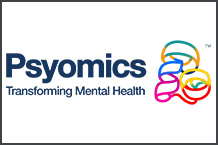|
We are delighted to announce that Parkwalk has closed an investment in Psyomics, a Cambridge spin-out that.....
|
|
|||||
 |
|
|||||
|
Dear , Psyomics was spun out from the research laboratory of Professor Sabine Bahn at Cambridge’s Department of Chemical Engineering and Biotechnology. Psyomics aims to increase the speed of diagnosis of mental disorders and to reduce the rate of misdiagnosis. The challenge is huge - mental illness accounts for over 15% of the disease burden in developed countries and, in England alone, costs over £51.6 billion a year – 3.5 times more than cancer. The Technology Psyomics is combining digital approaches with developments in biomarker technology from the Bahn Lab. The aim of this approach is better prevention, diagnosis and stratification of treatments. This single platform aims to deliver initial patient benefit in both prevention and differential diagnosis. For prevention, an initial digital screen (e.g. delivered by workplace support systems) helps the user determine the nature and extent of the issue affecting them, and guide them to a choice of personalised solutions that can improve their condition. This digital screen has been developed in collaboration with AXA Healthcare. For differential diagnosis, the platform will use a two-stage approach to identify those patients presenting with depression in primary care, who may have bipolar disorder. The first stage uses the digital screen to identify those being at risk, and the second stage uses a combined digital/ biomarker test to differentiate between major depressive disorder (MDD) and bipolar disorder with good predictive performance. This two-stage approach provides increased low cost access to patients and better stratification/ enrichment of patient population for biomarker testing. The blood based test utilises patent protected biomarker technology from the Bahn Lab to provide improved clinical diagnostics. Sabine Bahn has used clinical large sample sets to determine measurable panels of biomarkers for these disorders. IP Psyomics has licensed five patents developed in the laboratory of Professor Sabine Bahn. The patents cover various aspects of the technology from bipolar, depression and schizophrenia diagnosis to the differential diagnosis of these diseases The Opportunity There are 1.9 million depression consultations each year in the UK (55 million in the US and Europe), and of these around 40% of bipolar patients are initially misdiagnosed with depression. Correct diagnosis can take between 7 to 10 years, but meanwhile misdiagnosis leads to a cost burden caused by a higher rate of hospitalisations, cycling and suicide. Initial health economic analysis by the University of York indicates that this approach will save over £1 million in direct treatment costs per 100 bipolar patients or for 10,000 people presenting with depression. This does not include benefits calculated on a QALY basis. Psyomics targets first or recent onset depression in patients that are 18 to 35 years old which represent a potential market of £100 million in the UK alone. Psyomics will target the private/corporate UK market initially, followed by Europe and the US, and in the longer term the NHS. Over 9% of the UK population has work based private healthcare and 46% in the US. The two largest sources of claims on these policies are musculo-skeletal disorders and mental health. Psyomics digital screen has been developed in conjunction with AXA Healthcare, and will initially be delivered via workplace/private healthcare routes. Psyomics’ first differential diagnostic test is a blood based diagnostic test for MDD and bipolar disorder. The use of dried blood spots (not serum) and LC MS/MS immunoassay gives a low cost and consistent test. The test will be provided via a clinical partner (psychiatrist or GP) and analysed by Psyomics or a partner test laboratory. The long-term aim is to generate a large database which allows Psyomics to stratify patients by disease type, severity of disease and appropriate treatment pathways. This could be used to help healthcare providers and treatment developing companies to improve treatment pathways and to increase the efficiency of trials. The Team Dan Cowell, CEO, has 18 years of experience in early biotech companies as CEO and COO. He co-founded Pharmorphix and Hypoxium. He is currently a NED at Psyomics. Prof Sabine Bahn, CSO, is Professor of Neurotechnology at Cambridge University. She is also an honorary consultant in psychiatry. Sabine co-founded Psynova Neurotech which exited to RBM. Dr Anne Dobree, NED, is head of Seed Funds at the University of Cambridge. Experienced start-up director with a demonstrated history of working across a range of early stage technology companies. The Outlook Psyomics aims to deliver a personal, scalable, global solution that can make a difference to those suffering from mental health challenges, and at the same time reduce the cost of delivery for insurers, employers and health service providers through streamlining diagnosis and treatment. These are laudable objectives which could also yield significant financial returns for the company’s stakeholders. An eventual trade sale is the most likely outcome and, should the company gain commercial traction, an exit value in the £60-100m range could well be achievable. |
||
|
|||||
|
||
|
|||||

